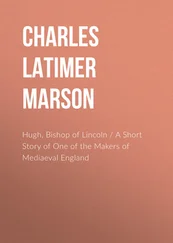Paul Vinogradoff - Villainage in England - Essays in English Mediaeval History
Здесь есть возможность читать онлайн «Paul Vinogradoff - Villainage in England - Essays in English Mediaeval History» — ознакомительный отрывок электронной книги совершенно бесплатно, а после прочтения отрывка купить полную версию. В некоторых случаях можно слушать аудио, скачать через торрент в формате fb2 и присутствует краткое содержание. Жанр: foreign_prose, Юриспруденция, История, foreign_edu, foreign_antique, на английском языке. Описание произведения, (предисловие) а так же отзывы посетителей доступны на портале библиотеки ЛибКат.
- Название:Villainage in England: Essays in English Mediaeval History
- Автор:
- Жанр:
- Год:неизвестен
- ISBN:нет данных
- Рейтинг книги:4 / 5. Голосов: 1
-
Избранное:Добавить в избранное
- Отзывы:
-
Ваша оценка:
- 80
- 1
- 2
- 3
- 4
- 5
Villainage in England: Essays in English Mediaeval History: краткое содержание, описание и аннотация
Предлагаем к чтению аннотацию, описание, краткое содержание или предисловие (зависит от того, что написал сам автор книги «Villainage in England: Essays in English Mediaeval History»). Если вы не нашли необходимую информацию о книге — напишите в комментариях, мы постараемся отыскать её.
Villainage in England: Essays in English Mediaeval History — читать онлайн ознакомительный отрывок
Ниже представлен текст книги, разбитый по страницам. Система сохранения места последней прочитанной страницы, позволяет с удобством читать онлайн бесплатно книгу «Villainage in England: Essays in English Mediaeval History», без необходимости каждый раз заново искать на чём Вы остановились. Поставьте закладку, и сможете в любой момент перейти на страницу, на которой закончили чтение.
Интервал:
Закладка:
12
Histoire de la conquête de l'Angleterre par les Normands.
13
Histoire du tiers état.
14
Histoire du droit municipal.
15
Prolégomènes au polyptyque de l'abbé Irminon.
16
Histoire des institutions de la France; Recherches sur quelques problèmes d'histoire.
17
Gregor von Tours und seine Zeit.
18
Deutsche Verfassungsgeschichte.
19
Geschichte des Beneficialwesens, 1856; Feudalität und Unterthanenverband, 1863.
20
Roth is very strong on this point.
21
Ueber angelsächsische Rechtsverhältnisse, in the Munich Kritische Ueberschau, i. sqq. (1853).
22
K. Maurer is very near Waitz in this respect.
23
See especially his Englische Verfassungsgeschichte.
24
Einleitung in die Geschichte der Hof-, Dorf-, Mark- und Städteverfassung in Deutschland, 1 vol.; Geschichte der Frohnhöfe, 4 vol.; Geschichte der Dorfverfassung, 1 vol.; Geschichte der Markenverfassung, 1 vol.; Geschichte der Städteverfassung, 4 vol.
25
Collected in 2 volumes of Agrarhistorische Untersuchungen.
26
Zur Geschichte der mittelalterlichen Feldgemeinschaft in England, 1869.
27
I do not mention some well-known books treating of medieval husbandry and social history, because I am immediately concerned only with those works which discuss the formation of the medieval system. Thorold Rogers, History of Agriculture and Prices, and Six Centuries of Work and Wages, begins with the close of the thirteenth century, and the passage from medieval organisation to modern times. Ochenkovsky, Die wirtschaftliche Entwicklung Englands am Ende des Mittelalters, and Kovalevsky, England's Social Organisation at the close of the Middle Ages (Russian), start on their inquiry from even a later period.
28
Is it necessary to say that I am speaking of general currents of thought and not of the position of a man at the polling booth? An author may be personally a liberal and still his work may connect itself with a stream of opinion which is not in favour of liberalism. Again, one and the same man may fall in with different movements in different parts of his career. Actual life throws a peculiar light on the past: certain questions are placed prominently in view and certain others are thrown into the shade by it, so that the individual worker has to find his path within relatively narrow limits.
29
The last great German work on our questions, Lamprecht, Deutsches Wirthschaftsleben im Mittelalter, is nearer Maurer than Sternegg.
30
Thorold Rogers, History of Agriculture and Prices, i. 70; Six Centuries of Work and Wages, 44. Cf. Chandler, Five Court Rolls of Great Cressingham in the county of Norfolk, 1885, pp. viii, ix.
31
Stubbs, Seventeen Lectures, 304, 305; Maitland, Introduction to the Note-book of Bracton, 4 sqq.
32
Dial. de Scacc. ii. 10 (Select Charters, p. 222). Cf. i. 10; p. 192.
33
Glanville, v. 5; Bracton, 4, 5; Fleta, i. 2; Britton, ed. Nichols, i. 194.
34
Bracton, 5; Britton, i, 197. Pollock, Land-laws, App. C, is quite right as to the fundamental distinction between status and tenure, but he goes too far, I think, in trying to trace the steps by which names originally applying to different things got confused in the terminology of the Common Law. Annotators sometimes indulged in distinctions which contradict each other and give us no help as to the law. The same Cambridge MS. from which Nichols gives an explanation of servus , nativus , and villanus (i. 195) has a different etymology in a marginal note to Bracton. 'Nativus dicitur a nativitate—quasi in servitute natus, villanus dicitur a villa, quasi faciens villanas consuetudines racione tenementi, vel sicut ille qui se recognoscit ad villanum in curia quae recordum habet, servus vero dicitur a servando quasi per captivitatem, per vim et injustam detentionem villanus captus et detentus contra mores et consuetudines juris naturalis' (Cambr. Univers. MSS. Dd. vii. 6. I have the reference from my friend F.W. Maitland).
35
Placita Coram Rege, Easter, 14 Edw. I, m. 9: 'Willelmus Barantyn et Radulfus attachiati fuerunt ad respondendum Agneti de Chalgraue de placito quare in ipsam Agnetem apud Chalgraue insultum fecerunt et ipsam verberaverunt, vulneraverunt et male tractaverunt, et bona et catalla sua in domibus ipsius Agnetis apud Chalgraue scilicet ordeum et avenam, argentum, archas et alia bona ad valenciam quadraginta solidorum ceperunt et asportaverunt; et ipsam Agnetem effugaverunt de uno mesuagio et dimidia virgata terre de quibus fuit in seysina per predictum Willelmum que fuerunt de antiquo dominico per longum tempus; nec permiserunt ipsam Agnetem morari in predicta villa de Chalgraue; et eciam quandam sororem ipsius Agnetis eo quod ipsa soror eam hospitavit per duas noctes de domibus suis eiecit, terra et catalla sua abstulit. Et predicti Willelmus et Radulfus veniunt. Et quo ad insultacionem et verberacionem dicunt quod non sunt inde culpabiles. Et quo ad hoc quod ipsa Agnes dicit quod ipsam eiecerunt de domibus et terris suis, dicunt quod predicta Agnes est natiua ipsius Willelmi et tenuit predicta tenementa in villenagio ad voluntatem ipsius Willelmi propter quod bene licebat eidem Willelmo ipsam de predicto tenemento ammouere.—Juratores dicunt … quod predicta tenementa sunt villenagium predicti Willelmi de Barentyn et quod predicta Agnes tenuit eadem tenementa ad voluntatem ipsius Willelmi.' Cf. Y.B. 12/13 Edw. III (ed. Pike), p. 233 sqq., 'or vous savez bien qe par ley de terre tout ceo qe le vileyn ad si est a soun seignour;' 229 sqq., 'qar cest sa terre demene, et il les puet ouster a sa volunte demene.'
36
Coram Rege, Mich., 3 4 Edw. I, m. 1: 'Ricardus de Assheburnham summonitus fuit ad respondendum Petro de Attebuckhole et Johanni de eadem de placito quare, cum ipsi teneant quasdam terras et tenementa de predicto Ricardo in Hasseburnham ac ipsi parati sunt ad faciendum ei consuetudines et servicia que antecessores sui terras et tenementa illa tenentes facere consueverint, predictus Ricardus diversas commoditates quam ipsi tam in boscis ipsius Ricardi quam in aliis locis habere consueverint eisdem subtrahens ipsos ad intollerabiles servitutes et consuetudines faciendas taliter compellit quod ex sua duricia mendicare coguntur. Et unde queruntur quod, cum teneant tenementa sua per certas consuetudines et certa servicia, et cum percipere consueverunt boscum ad focum et materiam de bosco crescente in propriis terris suis, predictus Ricardus ipsos non permittit aliquid in boscis suis capere et eciam capit aueria sua et non permittit eos terram suam colere.—Ricardus dicit, quod non debet eis ad aliquam accionem respondere nisi questi essent de vita vel membris vel de iniuria facta corpori suo. Dicit eciam quod nativi sui sunt, et quod omnes antecessores sui nativi fuerunt antecessorum suorum et in villenagio suo manentes.'
37
Note-book of Bracton, pl. 1237: 'dominus Rex non vult se de eis intromittere.'
38
It occurs in the oldest extant Plea Roll, 6 Ric. I; Rot. Cur. Regis, ed. Palgrave, p. 84: 'Thomas venit et dicit quod ipsa fuit uxorata cuidam Turkillo, qui habuit duos filios qui clamabant libertatem tenementi sui in curia domini Regis … et quod ibi dirationavit eos esse villanos suos, et non defendit disseisinam … Et ipsi Elilda et Ricardus defendunt vilenagium et ponunt se super juratam,' etc.
Читать дальшеИнтервал:
Закладка:
Похожие книги на «Villainage in England: Essays in English Mediaeval History»
Представляем Вашему вниманию похожие книги на «Villainage in England: Essays in English Mediaeval History» списком для выбора. Мы отобрали схожую по названию и смыслу литературу в надежде предоставить читателям больше вариантов отыскать новые, интересные, ещё непрочитанные произведения.
Обсуждение, отзывы о книге «Villainage in England: Essays in English Mediaeval History» и просто собственные мнения читателей. Оставьте ваши комментарии, напишите, что Вы думаете о произведении, его смысле или главных героях. Укажите что конкретно понравилось, а что нет, и почему Вы так считаете.












